Enterprise Resource Planning (ERP) signifies integrated, multi-module application software packages that are built to serve and support multiple business functions. Growing out of the manufacturing industry, ERP makes use of packaged software rather than closed-source software written that is owned by an individual. ERP modules can interface with an organization’s own software with varying degrees of effort, depending on the software.
Problem Statement
Oracle E-business Suite Application is one of the most famous ERP apps. Oracle ERP is largely built on Oracle’s proprietary technology ‘Oracle forms’ unlike open-source technologies like Java, PHP, etc., there are no standard tools for form testing.
Adopting Oracle Automation Testing can have varying degrees of success when done in-house. Oracle Corporation releases several enhancements, bug-fixes periodically for customers to evaluate and apply for the benefit. In an environment where on a business day, thousands of fully-customized orders & transactions get created, validating the entire system without any automation tool will be difficult.
Automating ERP-based Oracle Applications with open-source automation tools is not feasible, only selective licensed automation tools like QTP (UFT) & OATS from Oracle Corp are available for automation in the current market and not every company/enterprise can afford automation tools to automate their ERP application completely. With manual testing and limited time frame, it is risky to get the system validated (after changes, patches or product bug fixes) without having existing functional areas impacted.
Oracle Automation Testing Solution
We have a very simplified Oracle Automation Testing solution which can be implemented with minimal cost and time, and we call it ‘Semi-Automation’ that validates the existing system. We have built API factory to simulate the entire Order to Cash Flow. These APIs simulate the testing which include regression and performance.
Solution will cover the following:
- Validating critical business flows like Order to Cash (O2C), Procure to Pay (P2P) using Concurrent programs, SQL scripts in Oracle.
- Validating critical objects like Pricing, Tax, BOM & Routing which can be validated using concurrent programs, Macros.
In current blog, we are briefing Order to Cash cycle solution.
Detail Solution on Order to Cash
For any Oracle Application customer, major changes/implementations will be around Order to Cash and Procure to Pay cycles. Considering a manufacturing customer, it is a difficult task to create orders with all possible combinations.
Any Order to Cash Cycle will have common actions/activities which follow Entering Sales Order->Booking Order-> Pick Release-> Ship Confirm-> Order Closing->Invoice.
To summarize, our solution
- Saves the execution time by 70%.
- Requires no manual intervention.
- Can improve test coverage.
Enhanced Solution
The above request can be enhanced to work for bulk orders as well, if you are looking for multiple combinations of Test Data. It can be achieved through similar APIs where we will insert bulk orders in custom table [Image#6] from which above concurrent program [Image#2] can be run for multiple sets of new data. Inserting orders in custom table [Image#6] can be achieved through SQL scripts or WebADI [Image#5].
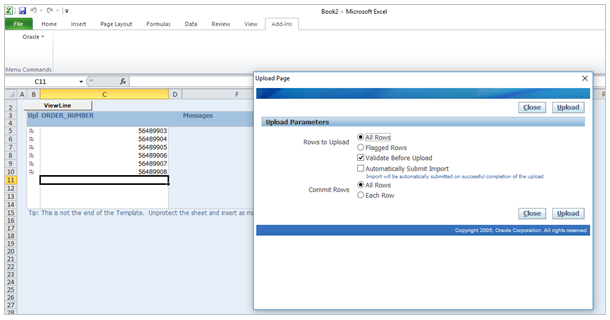
Do we need Technical Knowledge to understand and execute it?
Testing staff does not need any technical know-how. Evoke will help you get the APIs.
Can Semi-automation be extended to other areas/flows?
Apart from above basic business cycles like Order to Cash, Procure to Pay, we have other critical areas in Oracle, like Pricing, Tax, BOM & Routings. These areas can be validated using custom defined programs based on existing system order inputs and new data can be extracted to macros. We will provide more details on this in the next blog.
Open tools like Merge, Examdiff can be used to compare newly extracted with old data for mismatches & impact.
Summing Up
Testing Oracle Apps Regression Suite without any Automation tool is time-taking and adds additional cost to the project. Our Oracle Automation Testing solution is highly simplified, easy to use and saves execution time. As these programs are built on Oracle, there is no license cost involved, and maintenance & required changes can be implemented with minimal effort. This solution can also be extended to various modules & areas in Oracle Apps.
Evoke’s – Software Testing Services
We provide world-class quality assurance services that are designed with a greater focus on application performance, security, and automation. Our mature software testing frameworks coupled with smart testing methodologies enable firms to improve their software testing and delight their end-users. Contact us today to learn about our leading-edge testing services.
Author
 |
Lohith Ramanaboyina is an SCM specialist at Evoke technologies. With his extensive knowledge and experience as an Oracle Functional SME, Lohith is instrumental in identifying functional design, performing reviews and automating Oracle EBS processes. He enjoys working on newer technologies and exploring Oracle Cloud. |

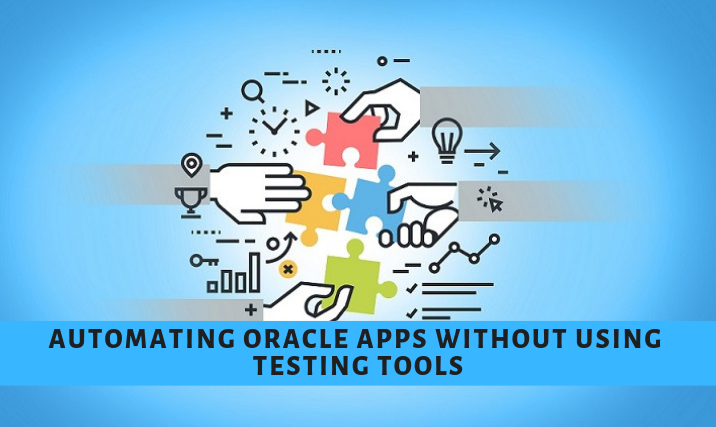
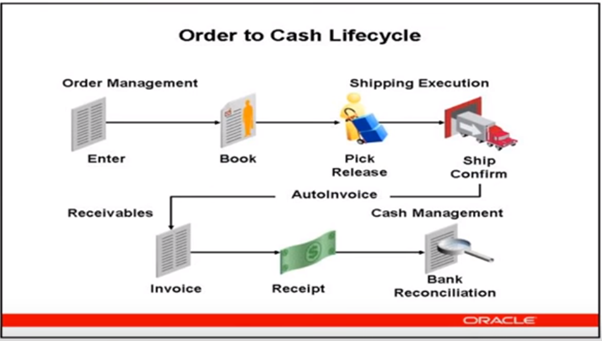
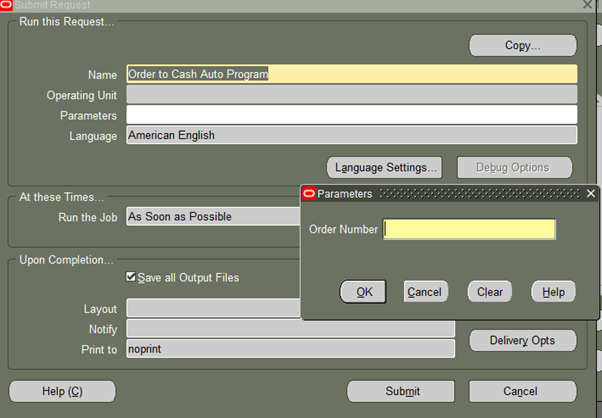
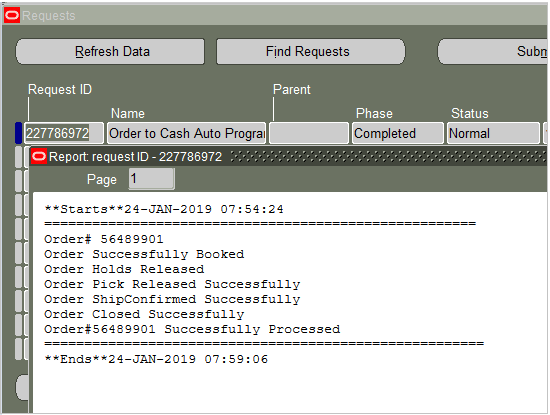

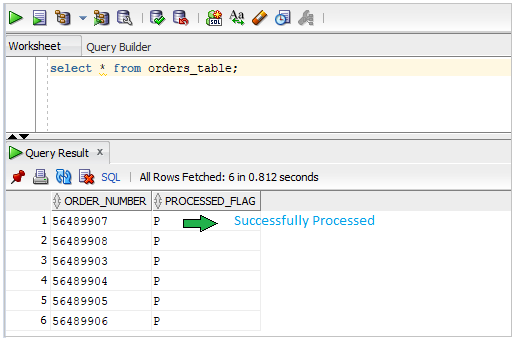





1 Comment
Great Info Lohith.